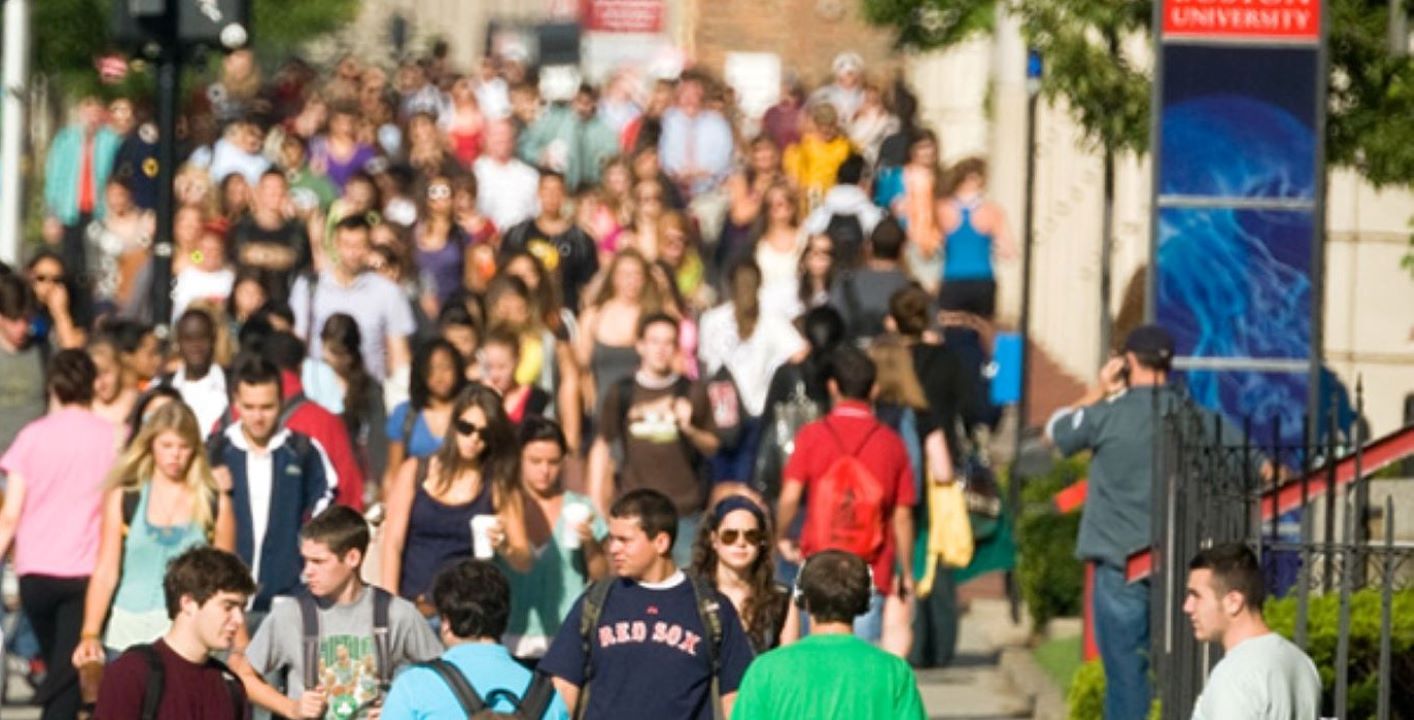International Student Newsletter
Dear International Students,
We hope you had a wonderful summer, whether you were on a break, taking a class, pursuing an internship, traveling, or a little bit of everything. A special welcome to all of our new Terriers! In the first newsletter for the fall semester, we wanted to share some exciting things happening on campus in the next few weeks. In the Announcements section, learn about FY103: Academic Strategies for Undergraduate Students and how this one-credit course can help you develop skills that will support your success at BU and beyond. Review the International Graduate Student Guide, and find helpful information, from getting the best phone plans, to driving in Boston, to navigating the U.S. healthcare system. Additionally, learn different tips and resources, provided by Student Health Services, to help you adjust to student life and cope with homesickness. Lastly, please note, the International Student and Scholar Office is hosting virtual Lunch Series Q&A events throughout the fall, to help you answer your F-1 immigration questions. In the Employment in the U.S. section, meet senior Vaibhavi Hansrajani (ENG’23), who reflects on her internship with the Boston Medical Center as part of the BU Kidney and Medical Engineering Program, and shares advice for international students. In Culture Corner, International Student Programming Assistant Doga Sevgi, discusses the peach vs. coconut culture concept, and some factors to consider when meeting people from diverse backgrounds.
We hope you enjoy this content, and if you have any feedback or suggestions for future newsletters, please contact Kamelia Turcotte at kameliat@bu.edu
Announcements

FY103: Academic Strategies for Undergraduate Students
FY103 is a nine-week, one-credit, pass/fail course open to all undergraduate students. Through a blend of discussions, demonstrations, and collaborative activities, the topics in the course will empower you to become more self-aware as a learner while developing skills that will support your success at BU and beyond.
Learn More & Register
International Graduate Student Peer Guide
Check out the International Graduate Student Guide created by current international graduate students. Find helpful information on a range of topics, from getting the best phone plans, to driving in Boston, to navigating the U.S. healthcare system.
Learn More
ISSO Lunch Series Q&A
The International Student and Scholar Office (ISSO) is hosting Lunch Series Q&A in the fall. These virtual events will provide an overview of F-1 immigration requirements, including employment and travel.
View Calendar
Adjusting to University Life and Coping with Homesickness
For many international students, especially in their first year at BU, being away from home for an extended period of time may be an unusual experience. Student Health Services offers tips and resources to help you during this time.
Learn MoreUpcoming Events
Employment in the U.S.

A Word from Students
BU student, Vaibhavi Hansrajani (ENG’23) reflects on her internship at the BMC and shares advice with international students.
Read the Full StoryCulture Corner
Written by Doga Sevgi, International Student Programming Assistant
Peaches vs. Coconuts: Communication Across Cultures
It is generally hard to approach strangers and have meaningful conversations with them. It is especially hard to do so when you are not in your home country and have to interact with people from different cultural backgrounds and traditions as each country, even particular region, has its own methods of communication. Authors in the field of cross-cultural communication, Fons Trompenaars and Charles Hampden-Turner, coined the idea of comparing cultures to peaches and coconuts.
Peach Culture
Just like the physical features of the fruit, people from peach culture appear “soft” and friendly, smile at strangers, and openly share information about themselves. Once you get past that initial friendship, you hit the hard seed in the middle of the soft layers. This hard seed is their protected, private self that only a few can get to meet. Although these people appear very friendly and open at first, it is harder to form a deeper bond with them as time moves on. Peaches often end up having relatively large networks, but only a few very close relationships.
Examples of peach countries/regions: United States, Canada, Japan, Brazil, the Middle East
Coconut Culture
In contrast to peach culture, people from coconut culture are described as “cold” and “hard” on the outside: they don’t smile at strangers, don’t engage in small talk, rarely share personal information with strangers, and mostly stay within their selected inner circle. If you can manage to not be misled by their unfriendly appearance, over time you will notice a crack in their shell- opening to a softer inner self. Opening up to others takes some time for individuals from coconut cultures but after that, they tend to accept you into their inner circle and become a loyal friend of yours.
Examples of coconut countries/regions: France, Germany, Switzerland, Russia, Vietnam, China
Cross-Cultural Communication
It should be noted that there is no right or wrong answer when it comes to building a relationship between two individuals. You have to be able to understand the cultural backgrounds and differences and find a common ground which you both feel comfortable adapting to. Don’t forget building bonds takes two so make sure to adapt to their style while explaining your own to them.
If you are looking to make friends from a peach culture, make sure to improve your small talk skills. Small talk in these cultures is the way to break the ice and initiate an easy, not too in-depth conversation. Don’t take it personally if they don’t feel comfortable sharing personal information with you right away.
If your friend-to-be is from a coconut culture, learn to be patient. It will surely take time for them to open up to you. Observe their interaction with people from coconut cultures and take note of what topics are considered appropriate to ask early on in the relationship. Most importantly adjust your expectations on the timeline of the friendship, your bond won’t get personal until they feel comfortable around you.
No matter which culture you are coming from and trying to communicate with, acknowledge that relationships will take time. Be patient and eventually you will find people to have strong bonds with. Communication is easy only when people involved are open to each other’s differences and are willing to adapt accordingly.
For additional tips, and to learn different cultural factors to consider when communicating with others, refer to Working in a Peach or Coconut Culture: How Canadians Can Successfully Do Business in Vietnam.
Sources: One Reason Cross-Cultural Small Talk Is So Tricky, Peach vs. Coconut: Cross-Cultural Communication Is Difficult, Working in a Peach or Coconut Culture: How Canadians Can Successfully Do Business in Vietnam
If you have suggestions for an aspect of American culture to feature in the next communication, please contact Kamelia Turcotte at kameliat@bu.edu
The Compass
There are over 250 academic, housing, community, and employment resources currently on the Compass and each issue we will highlight two.





